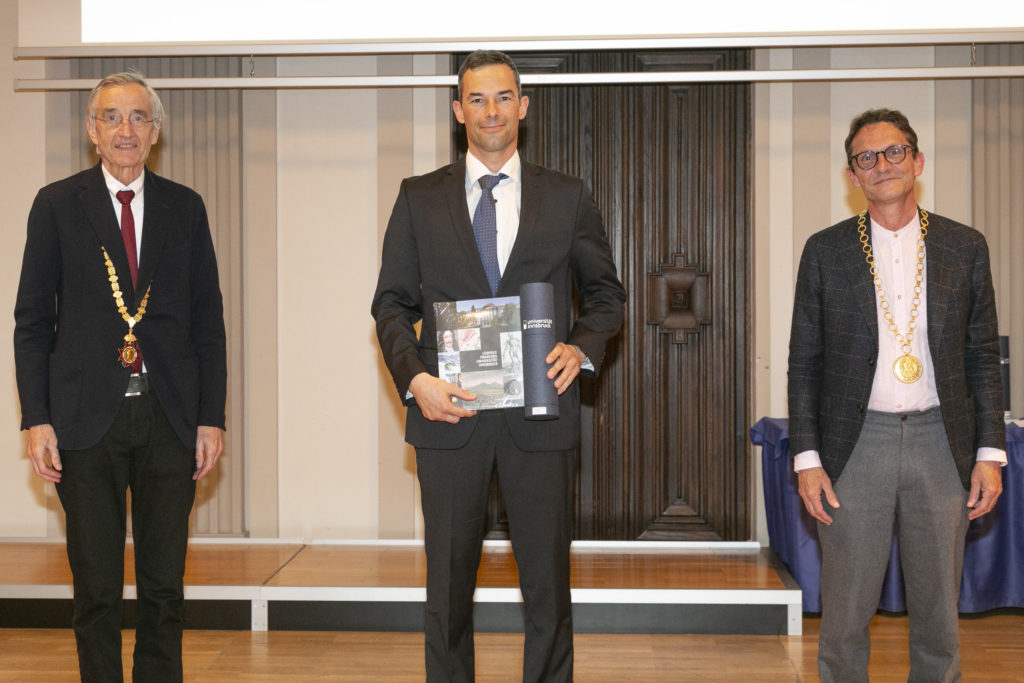Already the second colleague from the Centre for Secure Energy Informatics has achieved the highest-ranking qualification in the Austrian university system. We congratulate Günther Eibl on the successful completion of his habilitation, the highest academic examination in which outstanding achievements in scientific research and teaching are demonstrated.
Günther Eibl wrote his habilitation thesis on “Methods for Data-Privacy: Privacy Analysis and Privacy Enhancing Technologies ” and dealt with methods and technologies for improving data protection. Günther Eibl developed these methods during his research work at the Centre for Secure Energy Informatics and applied them specifically in the area of future digitalised energy systems.
The storage, use and processing of personal data must always be related to a specific purpose (purpose limitation). If a company or a person is allowed to process personal data but processes this data for another purpose for which it was intended, this causes a data protection breach.
Therefore Günther Eibl investigated what could be done with the data apart from the intended purpose: specifically which private information can be elicited from consumption data measured with smart metering systems, so-called smart meters. The methods used for this come from the field of data analysis with a focus on visualisation, statistics, machine learning as well as problem-specific methods such as NILM (nonintrusive load monitoring), i.e. the use of machine learning methods for fully automatic analysis.
As a second focus Günther Eibl dealt with measures for the data protection principle of data minimisa-tion: how can only the necessary data be processed, such as the sum of the measured values of households, without having to disclose the individual basic data. The protocols used for this are based on (public key) cryptography, secure multiparty computation and statistics. In addition he dealt with often neglected formal evidences of the desired properties of these protocols, which also enable a comparison of protocols with regard to data protection.
Günther Eibl studied mathematics and physics at the University of Innsbruck. He wrote his dissertation in the field of machine learning, especially on boosting methods for multi-class problems. As a PostDoc at the Institute of Theoretical Physics he carried out numerical simulations of plasma. Then he moved to the private sector where he was mainly involved in statistical analysis and the application of machine learning methods.
Günther has been teaching and researching at the FH Salzburg since 2013. His teaching focuses on mathematics, statistics and basic methods in data science. At the Centre for Secure Energy Informatics he conducts research in the research area of data privacy.
Günther Eibl explains: “My research focus is data protection especially in the application domain of energy. The focus is on data and not on legal issues or regulations. On the one hand it is about analysing which private information can be obtained from transmitted energy data. The methods used for this are mainly in the areas of visualisation, statistics and artificial intelligence. On the other hand at the Centre for Secure Energy Informatics we are developing efficient protocols for data minimisation. In simplified terms this involves calculating with data without having to reveal the original data. By determining only the information necessary for the application – such as average values – systems can work despite compliance with data protection. For the development of these protocols, methods from cryptography are typically used. As a mathematician I’m also concerned with formally proving the properties of the methods developed.”
We warmly congratulate our colleague on the highest scientific degree and recognition of this outstanding achievement!
